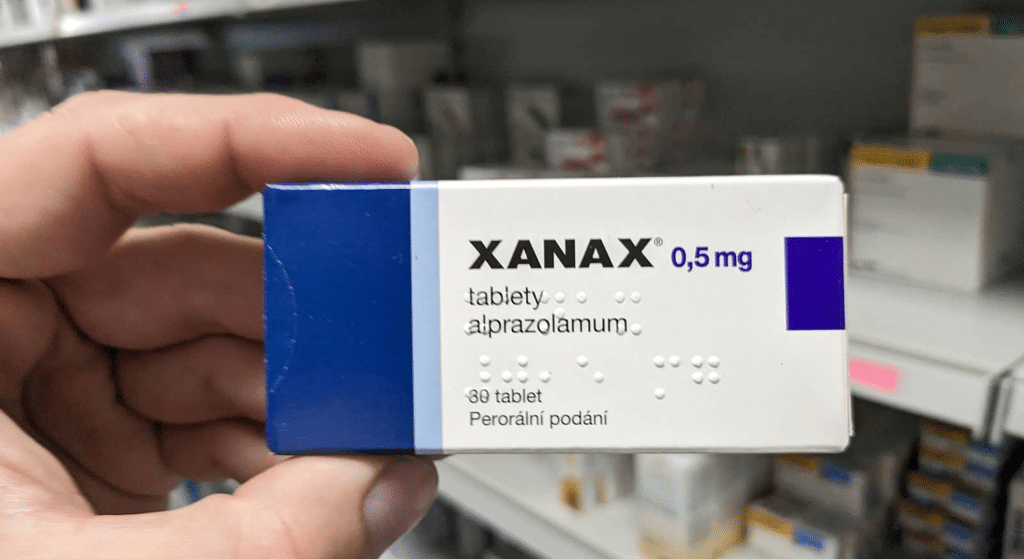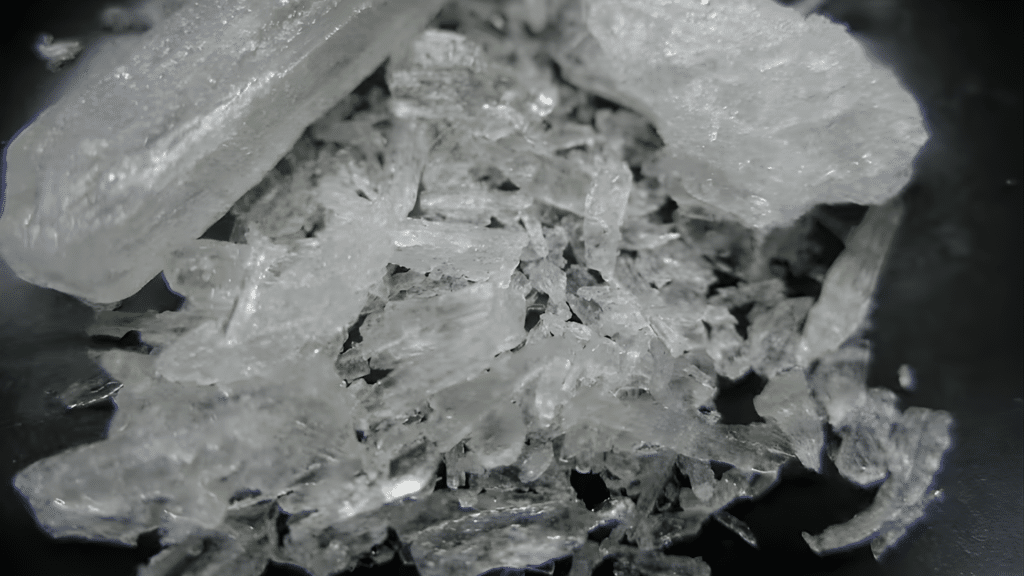I’ve seen that meth is one of the most addictive stimulants out there, mainly because of the intense rush it creates. You might have wondered, Can you snort meth? Some people think it’s safer than smoking or injecting, but that’s not really the case.
From what I’ve learned, yes, meth can be snorted, but it’s extremely dangerous. Snorting damages nasal tissue, harms the brain, and quickly leads to addiction.
For you, understanding how meth works, why people use it, and what it actually does inside the body is the first step in seeing the full picture of its dangers.
So let’s start by breaking down what meth really is and why so many people turn to it.
What is Meth and Why Do People Use It?
Methamphetamine is a strong man-made stimulant that affects the central nervous system. It triggers a quick release of dopamine, the brain’s “pleasure” chemical, which creates intense energy and alertness.
According to the National Institute on Drug Abuse (NIDA), nearly 2.5 million people in the U.S. reported using meth in 2021, and about 1.6 million developed a methamphetamine use disorder. These numbers show how widespread and addictive the drug is.
People may try meth for different reasons, such as:
- Staying awake or alert (students, workers, drivers)
- Losing weight because it reduces appetite
- Improving focus or performance
- Using it recreationally
While these reasons may explain why someone starts meth use, it quickly leads to dependence. It is usually sold as a white powder or clear crystals known as “crystal meth” or “ice.”
The effects may feel powerful at first, but they fade fast. What’s left are serious physical and mental consequences that grow worse with continued use.
Can You Snort Meth?
Yes, meth can be snorted. Inhaling methamphetamine through the nose allows it to be absorbed quickly through the nasal tissues into the bloodstream.
This method produces fast-acting effects usually within minutes and is often chosen by users who want to avoid needles or the visibility of smoking.
However, snorting meth is far from safe. It damages nasal passages, causes inflammation, and can lead to chronic infections or a perforated septum.
The drug reaches the brain rapidly, triggering intense stimulation and increasing the risk of compulsive use. While it may not leave visible marks like injections do, the internal damage can be just as severe.
What Happens When You Snort Meth?

Snorting meth creates fast changes in the brain and body. The effects show up quickly and can be both short-term and long-term.
Short-Term Effects
Snorting meth produces an almost immediate high. People often feel a sudden rush of energy and alertness.
Common short-term effects include:
- Intense euphoria and energy
- Loss of appetite
- Rapid speech and hyperactivity
- Dilated pupils, dry mouth, and muscle tension
- Anxiety, paranoia, or agitation
These effects may last for hours. Afterward, a crash usually follows, bringing exhaustion, irritability, and depression. Clinical studies show that even a single use can disrupt heart activity and mood regulation.
Long-Term Effects
Repeated snorting of meth takes a heavy toll on the body and mind. Over time, the damage becomes more severe and harder to reverse.
Long-term effects include:
- Frequent nosebleeds and sinus infections
- Tissue damage or septum perforation
- Memory loss, paranoia, and hallucinations
- Severe weight loss, skin sores, and tooth decay (“meth mouth”)
- Long-lasting damage to dopamine systems, reducing mood control and focus
These long-term harms can last for years, even after stopping meth use.
Snorting vs. Other Methods Of Use
Each method of meth use presents different dangers. Snorting causes damage to the nasal lining and sinuses, leading to infections and internal scarring.
Smoking meth harms the lungs and increases the risk of respiratory problems, including chronic bronchitis.
Injecting meth delivers the drug directly into the bloodstream, producing the most intense high but also the highest risk for bloodborne infections, collapsed veins, and overdose.
Regardless of the method, meth is addictive and harmful. Users who believe snorting is a “safer” option are misinformed; all forms carry significant health risks and long-term consequences.
Comparison Between Snorting, Smoking, & Injecting
| Method | Onset Time | Health Risks | Risk Level |
|---|---|---|---|
| Snorting | Minutes | Nose damage, infections, and addiction | High |
| Smoking | Seconds | Lung damage, cravings | Very High |
| Injecting | Seconds | Infections, overdose | Extremely High |
Disclaimer: No method is safe. All carry significant risks.
Why Do People Snort Meth Instead of Smoking or Injecting?
Snorting feels discreet and less “serious” to new users, but this is a dangerous misconception. Snorting still produces a strong high, creates addiction risk, and can cause permanent physical damage.
Many who begin snorting eventually switch to smoking or injecting as tolerance builds.
Signs Someone is Snorting Meth
Watch for these warning signs:
- Frequent nosebleeds or constant sniffing.
- Nasal pain or congestion without illness.
- Rolled-up bills, cut straws, or white powder residue.
- Hyperactivity, rapid speech, and long sleepless periods.
- Sudden weight loss and poor hygiene.
- Mood swings, paranoia, or social withdrawal.
Meth causes a surge of dopamine in the brain. This “feel-good” chemical creates powerful reinforcement that drives repeated use. With time, the brain produces less dopamine on its own. This makes it hard to feel normal pleasure without the drug.
The result is a cycle of tolerance, withdrawal, and compulsive use that is difficult to break without help.
Overdose Risks from Snorting Meth

Snorting meth can cause dangerous and sometimes fatal outcomes. Even small amounts can trigger an overdose, especially when the drug is very pure.
Common risks and symptoms include:
- Increased heart rate and high blood pressure
- Risk of heart attack, stroke, or seizure
- Chest pain, confusion, or disorientation
- Visual or auditory hallucinations
- Loss of consciousness or unresponsiveness
- Higher danger when mixed with alcohol, opioids, or other stimulants
Acting quickly during a suspected overdose is critical. Call emergency services right away to prevent permanent harm or death.
Treatment for Meth Addiction
Recovering from meth addiction takes medical care, therapy, and long-term support. Treatment helps manage withdrawal, build healthier coping skills, and reduce the chance of relapse.
Detox and Rehab
Treatment usually begins with medical detox. This step allows the body to clear the drug while easing withdrawal symptoms such as fatigue, anxiety, and depression.
After detox, many people enter structured rehab. This may be inpatient or outpatient, depending on the level of support needed. In rehab, individuals take part in therapy, counseling, and medical care.
Cognitive Behavioral Therapy (CBT) is one of the most effective tools for changing harmful thoughts tied to drug use. Rehab programs may also include group therapy, life skills training, and mental health support.
Personalized care backed by evidence greatly improves the chances of long-term recovery.
Long-Term Support
Recovery does not stop after rehab. Ongoing support is key to staying sober.
- Peer groups like Crystal Meth Anonymous provide encouragement and accountability
- One-on-one therapy helps people manage triggers and mental health concerns
- Family counseling repairs relationships and strengthens trust
Building new routines and avoiding high-risk situations are essential. A strong support system increases the likelihood of long-term recovery and helps individuals regain stability in their lives.
Disclaimer: This blog is for educational purposes only and is not medical advice. If you or someone you know is struggling with meth use or addiction, please talk to a healthcare professional or call one of the helplines below.
Where to Get Help
If you or someone you care about is dealing with meth use, there are safe places to turn for support. These services are free and confidential.
- SAMHSA Helpline: 1-800-662-HELP (4357). Available 24/7 to answer questions and connect you with treatment options in your area.
- National Drug Helpline: 1-844-289-0879. Provides information and guidance about recovery programs and resources.
- 988 Suicide and Crisis Lifeline: Dial 988 for immediate help if you are facing a mental health, substance use, or emotional crisis.
- Local Clinics and Health Departments: Many offer affordable or sliding scale addiction treatment close to home.
You do not have to face this alone. Help is available whether you are ready to quit or just want to scour your options.
Conclusion
I’ve heard some people think snorting meth might be less harmful than other ways of using it, but the reality is very different.
The drug changes brain chemistry, harms the body, and pulls people into a cycle that’s incredibly hard to break.
When you ask, Can you snort meth, what you’re really asking is how much risk you’re willing to take because every use carries the chance of lasting damage.
For you, it’s essential to know that recovery is possible, but it requires support, treatment, and a genuine commitment.
If you’d like to learn more about addiction, recovery options, or healthier lifestyle changes, you can check other blogs on the website!









